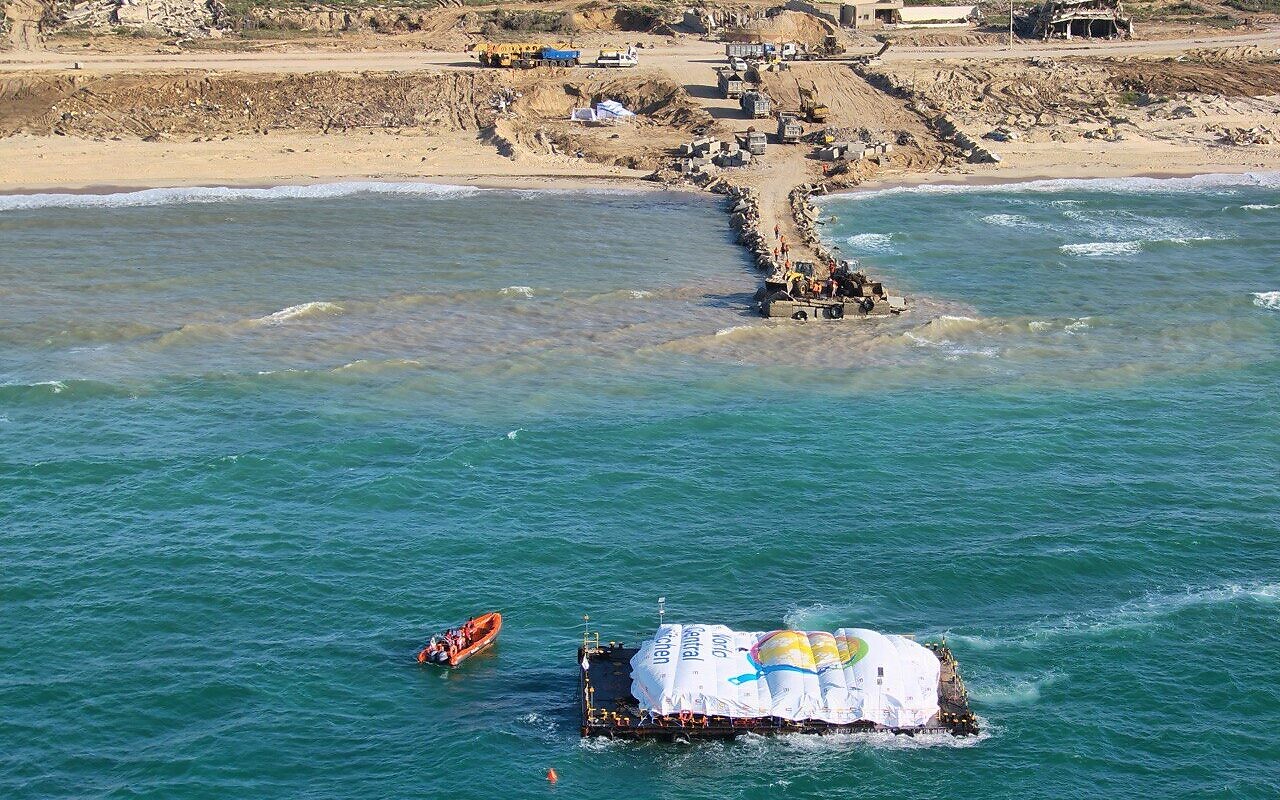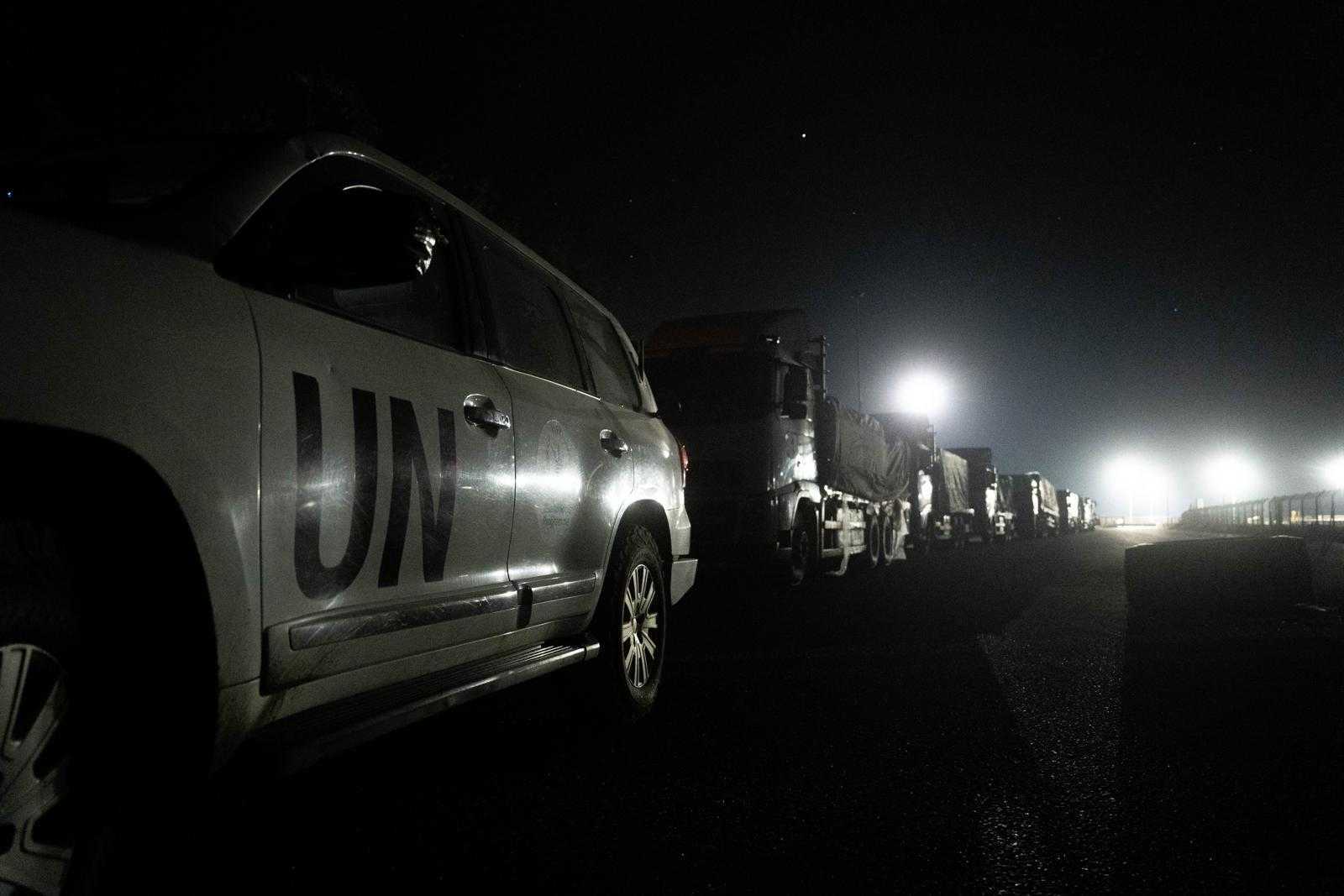



A charity said Saturday its team in the Gaza Strip had finished unloading the first maritime aid shipment, in a test run for a new aid route by sea from Cyprus to help alleviate the humanitarian crisis in the enclave five months into the war between Israel and Hamas.
“All cargo was offloaded and is being readied for distribution in Gaza,” World Central Kitchen said in a statement, noting that the aid was “almost 200 tons of food.”
The humanitarian effort is intended to mitigate food shortages that have prompted famine warnings in Gaza from the United Nations and aid workers.
WCK is also preparing a second boat of 240 tons of food to set sail from Cyprus, the starting point of a new maritime aid route across the eastern Mediterranean.
“That shipment includes pallets of canned goods and bulk product including beans, carrots, canned tuna, chickpeas, canned corn, parboiled rice, flour, oil and salt,” World Central Kitchen said.
“Among the hundreds of tons of aid are pallets of dates, which hold spiritual significance during Ramadan,” the NGO said.
The second shipment would also include a forklift and a crane to assist with deliveries, it added.
The humanitarian group said it had “no information to release on when our second boat and the crew ship will be able to embark.”
The first shipment arrived in Gaza on a barge towed by a ship on Friday.
Floating on a barge attached by rope to a salvage ship, rough seas appeared to slow down the cargo reaching land, footage posted by a WCK official on social media showed.
WCK constructed a makeshift jetty, which allowed the flat-bottomed barge to approach Gaza’s shallow waters for lack of proper port infrastructure.
The Israel Defense Forces later said that 115 tons of food and water from the barge were offloaded to 12 trucks, which were to be distributed in northern Gaza by WCK.
The IDF said the aid had undergone a “comprehensive security check” before being unloaded.
In a statement, the IDF said the delivery of the aid was being “carried out in coordination and subject to an agreement with the civilian company,” adding that “the entry of humanitarian aid does not constitute a violation of the maritime security blockade.”
There are few details on how the aid delivery and distribution would work once it is ready to unload in Gaza, with UN relief agencies having described huge obstacles to getting relief supplies to those in need.
Israel has been under increasing pressure to allow more aid into Gaza. The United States has joined other countries in airdropping supplies to the isolated region of northern Gaza and has announced separate plans to construct a pier to get aid in.
The UN has reported particular difficulty in accessing northern Gaza for deliveries of food and other aid.
Residents say they have resorted to eating wild plants and animal fodder, and some have stormed the few aid trucks that have made it through, sometimes with deadly consequences.
Aid groups say the airdrops and sea shipments are far less efficient ways of delivering the massive amounts of aid needed in Gaza.
Instead, the groups have called on Israel to guarantee safe corridors for truck convoys after land deliveries became nearly impossible because of military restrictions, ongoing hostilities, and the breakdown of order after the Hamas-run police force largely vanished from the streets. The daily number of supply trucks entering Gaza since the war began has been far below the 500 that entered before October 7.
Earlier in the week, Israel allowed six aid trucks to enter directly into the north, a step aid groups have long called for.
World Central Kitchen operates 65 kitchens across Gaza and has served 32 million meals from them since the war started, the group said. The aid includes rice, flour, lentils, beans, tuna and canned meat, according to World Central Kitchen spokesperson Linda Roth.
The organization plans to distribute the food in the Strip’s north, the largely devastated target of Israel’s initial offensive in Gaza, which has been mostly cut off by Israeli forces since October.
Up to 300,000 Palestinians are believed to have remained there despite Israeli evacuation orders. The aid is a tiny fraction of what is required, but the shipment was intended to pave the way for other larger shipments, officials working on the route have said.
The Israel-Hamas war was triggered by Hamas’s October 7 attack on Israel in which terrorists broke through the border, killed some 1,200 people, mostly civilians, and kidnapped 253 into Gaza.
World Central Kitchen also ran a large operation in Israel in the weeks following October 7, providing meals for Israelis displaced from the northern and southern borders, and delivering food to freed hostages and their families.




